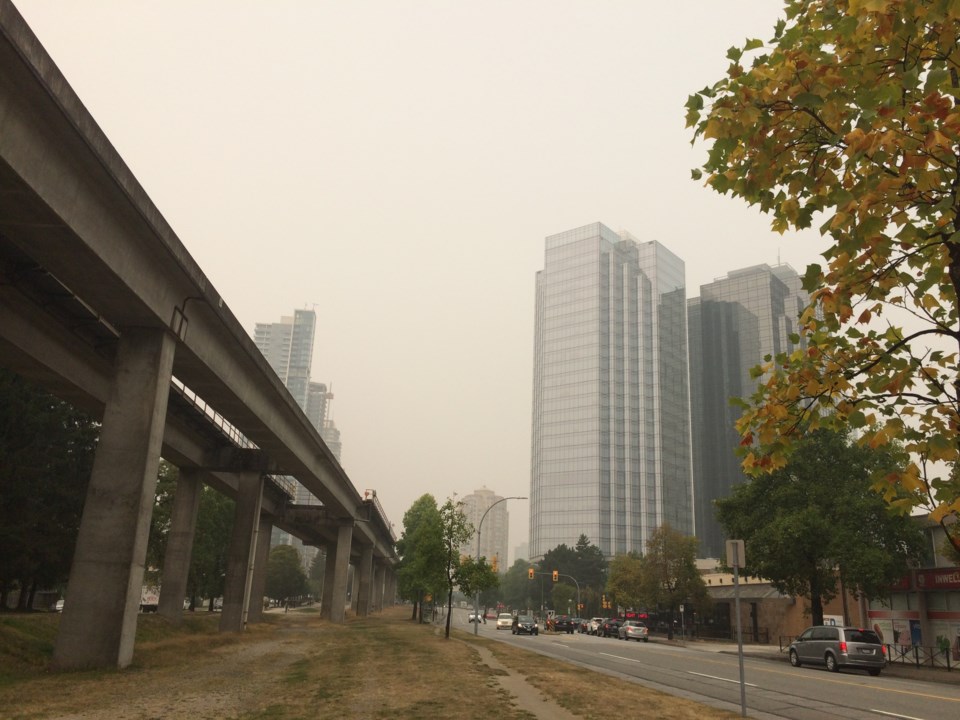The air in Burnaby is still a health hazard, as smoke from wildfires in Washington and Oregon continues to blanket the region.
All six of Burnaby’s air monitoring stations are currently showing readings of 10+ on the health index, according to Metro Vancouver’s air map.(The higher the number, the greater the risk of health problems associated with air quality; a 10+ is the highest possible risk.)
A Metro Vancouver advisory says the forecast calls for "slight improvement" in air quality today, but ground-level smoke will remain - possibly until later this week. Smoke concentrations may vary over time as winds shift and wildfire behaviour changes.
Complicating the air today is added smoke from a major fire at Westminster Pier in New Westminster, where burning creosote-soaked wood has added toxic smoke to the mix.
Air exposure is a particular concern for anyone with underlying conditions such as lung or heart disease, chronic obstructive pulmonary disease (including bronchitis and emphysema), as well as asthma or diabetes. Anyone with a respiratory infection, pregnant women, infants, children, outdoor workers and older adults may also be at higher risk.
The region has offered up some tips for reducing your personal health risk:
- Stay cool and drink plenty of water.
- Use symptom management medications, such as inhalers, as needed.
- Continue to manage acute infections or pre-existing chronic medical conditions; if symptoms continue to be bothersome, seek medical attention.
- Stay in cool, air-conditioned environments, especially during afternoon and evening when ozone levels are highest.
- Reduce indoor sources of pollution (such as smoking and vacuuming) and run an air cleaner. Some room air cleaners, such as those with HEPA filters, can help reduce indoor particulate levels.
- Consider taking shelter in air-conditioned buildings that have large indoor volumes and limited entry of outdoor air, but be mindful that space may be limited due to physical distancing guidelines for COVID-19.
- If you are experiencing symptoms such as chest discomfort, shortness of breath, coughing or wheezing, seek prompt medical attention. Call 9-1-1 in the case of an emergency.



